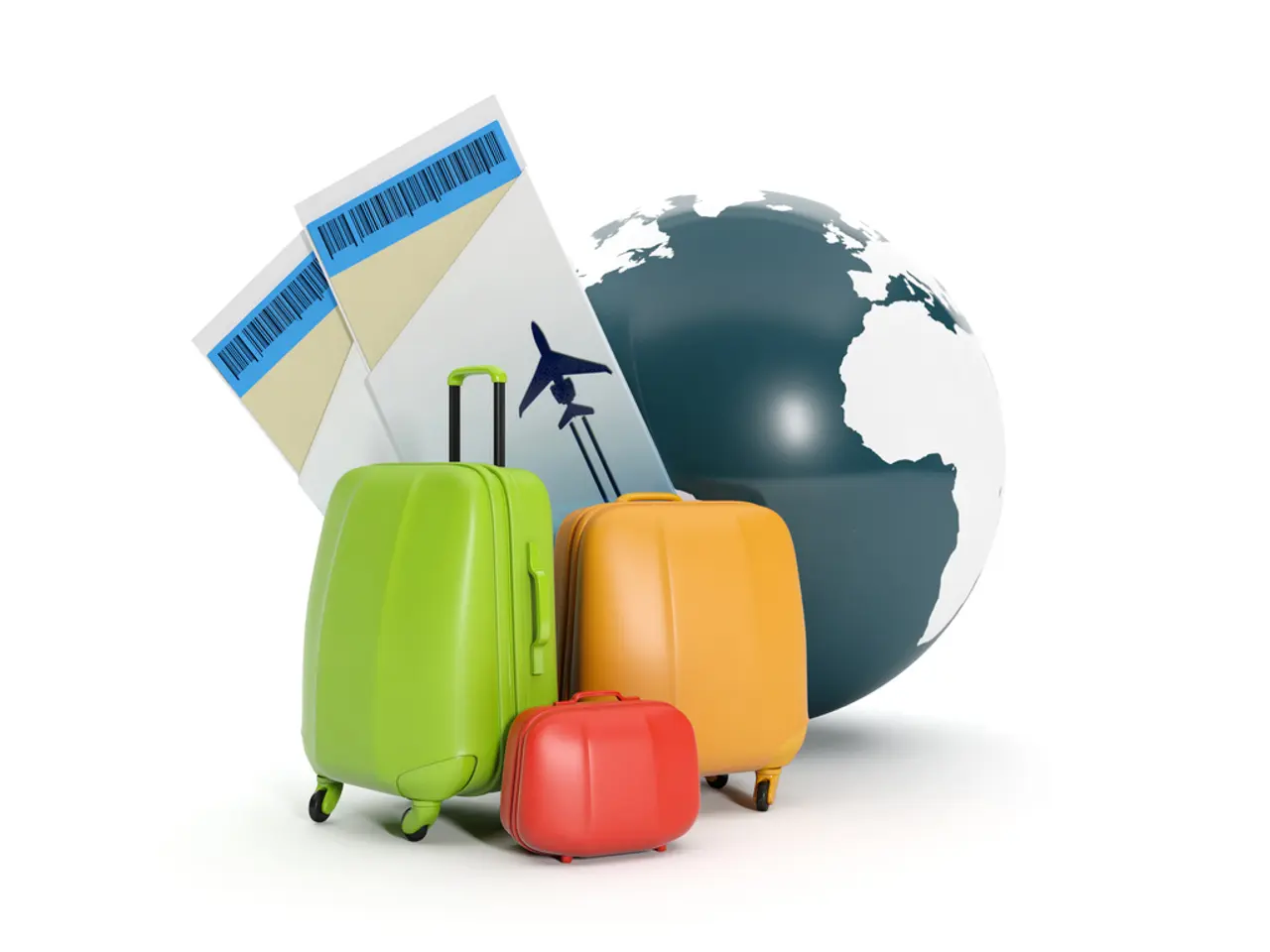Airlines prohibited from imposing charges for carry-on baggage, as per EU lawmakers' decision.
The European Parliament’s transport committee has taken a significant step towards easing travel for passengers within the EU. In a recent vote, MEPs have approved a proposal that would require airlines operating in the EU to allow passengers to bring one personal item and one small hand luggage on board without additional fees.
Under the proposed changes, airlines would be required to send passengers a pre-filled reimbursement form within 48 hours following any travel disruptions, or activate alternative automatic communication channels. The new rules aim to ensure that passengers are informed about the reimbursement process within 14 days, with the air carrier processing the reimbursement within 7 days if the deadline is missed.
The proposal also addresses the rights of passengers when travelling by multiple modes of transport, such as plane and bus, or train, ferry, and plane. MEPs have backed a proposal to introduce compensation for disruptions in such journeys, and have proposed clarifying the role of intermediaries in the reimbursement of air passengers for cancellations, delays, or denied boarding.
The new rules also aim to protect all passengers, with special attention to persons with disabilities and reduced mobility. The definition of free hand luggage has been clarified as "up to a maximum size of 100cm," and there will be compensation rights in case of loss or damage to equipment or injury to assistance animals for those accompanying passengers with reduced mobility.
While the initiative is advancing, the ban on additional fees for hand luggage is not yet in effect and is still subject to negotiations and final approval. The approved proposal must be negotiated and approved by the full European Parliament and the Council of the European Union, which represents the member states. Negotiations between the Parliament and member states are set to start in July 2025, and the proposal will require the approval of at least 55% of EU member states before it can be implemented.
Last year, the Spanish Ministry of Social Rights and Consumption fined five airlines €179 million for practices that did not inform passengers about the full cost of their air ticket, intermediation or service fees, and the reimbursement process. Intermediaries, such as ticket vendors or travel agencies, would be required under the new rules to inform passengers at the time of booking about these costs.
MEPs have also voted to ensure that children under 12 years old are seated next to their accompanying passenger free of charge, as part of a package of amendments to passenger rights when travelling by air, rail, sea, coach, and inland waterways.
Airlines and their lobbies have expressed concerns that such a rule could lead to increased ticket prices. However, the proposed changes are intended to bring into EU law a 2014 ruling by the European Court of Justice that hand baggage cannot be made subject to a price supplement, as long as it meets reasonable weight and dimension requirements and complies with security requirements.
The proposed changes, if implemented, would apply to all flights departing or arriving within the 27-nation European Union. Consumer groups have lodged a complaint with the European Commission, arguing that the EU top court recognized hand luggage as an essential aspect of passengers' carriage. The final outcome of the negotiations remains to be seen.
Travelers within the EU may soon be able to enjoy a more seamless lifestyle when it comes to travel, as the proposed changes aim to protect passengers by requiring airlines to allow one personal item and one small hand luggage on board without additional fees. Additionally, the new rules aim to ensure that passengers with disabilities and reduced mobility receive compensation for lost or damaged equipment, injury to assistance animals, and are seated next to their accompanying passenger free of charge.




